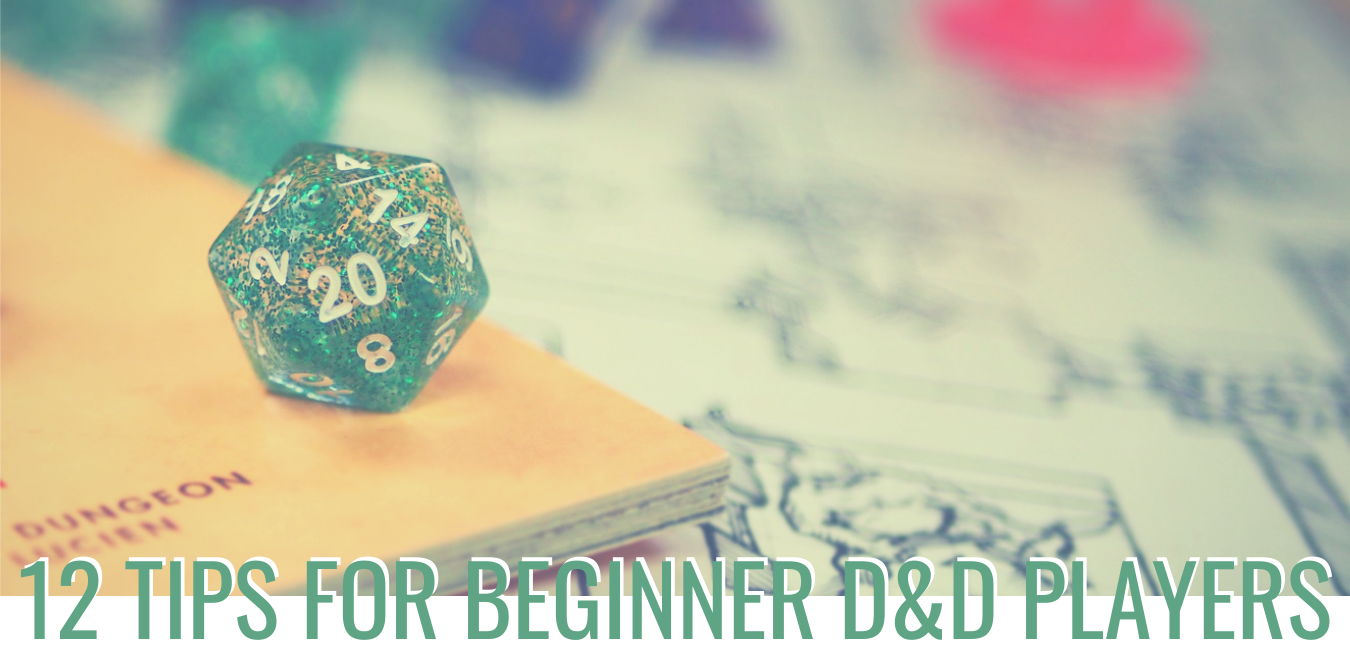
12 Tips for Beginner D&D Players
As a new player, there's a lot to grasp when it comes to Dungeons and Dragons. Luckily, we've all been there! We've compiled 12 tips to help you be the best D&D player right out of the gate.
1. Watch Others
If you’re completely new to the game of Dungeons and Dragons, the rules might seem a little overwhelming. A good way to learn the rules fast is through videos. Not only does YouTube host a variety of tutorials but it is also home to numerous campaign videos. You can find D&D streamers on Youtube or Twitch! You’ll quickly find that you’re learning the rules as well as being entertained!
2. Use a Pre-made Character
While it’s tempting to choose a spell-flinging druid that turns into cat shapes, if it’s your first time playing, we recommend using a pre-made character. You can buy pre-made characters or find pre-made characters online. If a pre-made character doesn’t suit your fancy, you can also work with your DM to create a character.
3. Understand Your Character Flaws

Your character has a personality! Play it up by acknowledging their flaws. If they have low dexterity, they may trip inot any room they enter. If they are a kleptomaniac, may they blackout and forget they even stole and why. Flaws help make your characters memorable and offera new dynamic to the group.
4. Review Your Character Class
While you don’t need to learn every feature of your character’s class for the first session, it is important to know what direction you’d like to take your character. Check out what happens when they level up, and write down key features you can use in your session.
5. Be Prepared For Your Session
While some DM’s may let you just show up to the session, it’s a good idea to ligthen the load for the DM by coming prepared. OBviously, you’ll need you character sheet. We recomend having either a duplicate copy (in case you lose one) or an additional digital copy. You can also ask your DM to keep track of it for you. Having pencil and paper will also com in handy, as well as any dice or other acroutrement for the game.
It’s also a good idea to review what you want to do this session, if this is a continuation of the last session. Knowing the directino that you want your character go will make roleplay them easier.
6. Don’t Be Afraid to Make Mistakes (Or of Nat 1s!)
As a part of the human race, we all have the ability to make mistakes. No one expects you to get it right everytime, whether you’re a newbie or a veteran. Don’t be afraid to mess up, and don’t be afraid of your dice. Though no one likes rolling a natural 1 on that goblin attack, it could make for a a fun storytelling moment. Does your character spin in a circle or flat on their butt? Either way the visual is entertaining.
7. Don’t Get Hung Up on the Rules
There are a lot of rules in Dungeons & Dragons. No one expects you to know them all! If you’re unclear about something, your DM can help you figure it out. Or, if you both don’t know, you can look it up at the table. Don’t let the rules interfer with the game, however. If it’s taking a while t o find the answer, write it down and look it up later. You can always recon an event or roll if necessary.
8. Cheer On Other Players
You’re not the only player at the table. Be sure to allow others a chance in the spotlight. If they roll at Nat 20, cheer them on. If they try to roleplay a conversation, have your character chime in with support. Paying attention to other players allows your group to create a memorable story.
9. Avoid Metagaming
This boils down to one question: What does my character ACTUALLY know? Do they have a history of fighting skeletons? Or do you know skeletons are weak to bludgeoning because you played a lot of Skyrim? Every table has different rules, so touchbase with your DM if you’re concerned about metagaming.
10. Be a Proactive Part of the Story
While the DM may be the narrator in this story, your characters are the main protagonists. Play in active role in the story by following up on suspicious leads, asking the DM to explain more about certain situations, or actively listening to the narration. Try not to let the DM ask “What do you want to do?” Instead, have an idea of what you’d like to do and propose it at the table. This will not only make it more fun for everyone, but also show your DM that you’re invested in the world they are trying to share with you.
11. Pay Attention to Other Players and the Dungeon Master!
While it’s tempting to take the time between combat turns to check Facebook, you should instead try to pay attention to all of the other players and the DM throughout the game. This can be hard when games span longer than 4 hours at times, but it will keep you immersed in the game. You’ll be able to plan for your next turn, and pick up on keep story moments if you do your best to pay attention.
12. Take Notes for Your Campaign!
Another way to be sure you’re giving the game your full attention is to take notes throughout the game. Whether you use a digital tool or a physical tool (like our Player's Notebooks), recording what happens during your campaign is a great way to not only pay attention but also look back on when you're 50 sessions in!
Good Luck New Player!
We hope that these 12 tips helped you whether you’re a complete beginner or a only a couple sessions in. If you're looking for a great way to keep track of your character sheet and campaign notes, check out our player's notebooks! We have a variety of journals for different classes.


